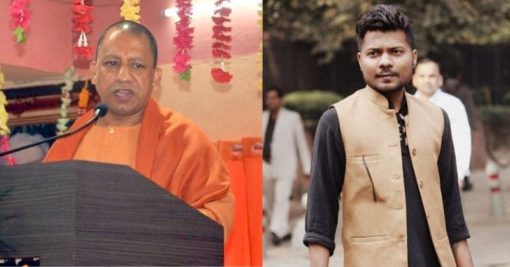
The Supreme Court today ordered the immediate release of journalist Prashant Kanojia on bail following his arrest by the Uttar Pradesh police for allegedly sharing an objectionable post about Chief Minister Yogi Adityanath.
“Liberty of a citizen is sacrosanct and non-negotiable. It is guaranteed by the Constitution and it cannot be infringed,” Justice Indira Banerjee said in court, while criticising the UP police for arresting the journalist for an allegedly inflammatory and defamatory tweet.
Noting that, prima facie, no case had been made out of depriving anybody’s liberty, the two- judge bench of the Supreme Court, comprising Justices Banerjee and Ajay Rastogi, criticized the Magistrate for Kanojia’s 11-days judicial remand but allowed the police to proceed against the journalist in accordance with the law.
In its order released later in the day, the judges said Article 32, itself a fundamental right, “cannot be rendered nugatory in a glaring case of deprivation of liberty as in the instant case, where the jurisdictional magistrate has passed an order of remand till 22.06.2019 which means that the petitioner’s husband, Prashant Kanojia would be in custody for about 13/14 days for putting up posts/tweets on the social media”. The fundamental rights guaranteed under the Constitution of India and in particular Articles 19 and 21 of the Constitution of India are “non-negotiable”, the judges said.
Responding to Additional Solicitor General Vikramjit Banerjee’s argument that the petitioner’s habeas corpus petition should have been filed in the high court and the remand challenged under the provisions of the Criminal Procedure Code, the judges said, “We are not inclined to sit back on technical grounds. …under Article 142 of the Constitution of India this court can mould the reliefs to do complete justice”.
Jagisha Arora, Kanojia’s wife, had approached the Supreme Court against the alleged illegal detention of her husband at the instance of the Uttar Pradesh Police for posting a tweet about Uttar Pradesh Chief Minister Yogi Adityanath.
The tweet said “Ishq chupaye nahin chupta Yogiji”broadly meaning “love cannot be hidden, Yogiji” which prefaced a video already circulating on YouTube and other portals, in which a woman was seen approaching CM Yogi in Lucknow with a love letter.
Kanojia was unceremoniously taken away by men in civilian clothes on June 8, 2019, from his Delhi residence. Later it transpired that on June 7, 2019, police officials of Police Station Hazratganj, Lucknow had lodged an FIR against him under Sections 500 of the Indian Penal Code (IPC) and 66 Information Technology Act, 2000 both of which are bailable offences.
No role for the police
In her plea, Jagisha Arora had pointed out that “the police can have no role whatsoever to lodge an FIR in a case under Section 500 IPC, which is criminal defamation, and requires under Section 199, CrPC that the person aggrieved alone may file a complaint before a Magistrate”.
“Section 66 of the Information Act carries a maximum sentence of three years which is bailable in terms of section 77 B of the Act. The police were bound to release him in Delhi itself in terms of Section 436 CrPC which mandates release on bail in bailable cases but this statutory mandate was not even considered by the police”, the petition reads.
In order to obviate any release on bail, in an FIR carrying bailable offences only, the petitioner’s husband was perhaps not produced before any Magistrate to seek a transit remand. No arrest memo was prepared and neither the petitioner nor her husband was told of why he was being taken and who the “arresting officials” in civilian clothes were, Jagisha alleged in her petition.
The petition further highlighted that much later, at around 6 pm in the evening of June 8, 2019, a “press note” was released by Hazratganj police claiming that the petitioner’s husband was held under Sections 500, 505 of IPC and Section 67 IT Act.
Two sections, i.e. Section 505 IPC and Section 67 IPC were obviously added because the FIR contained only bailable offences. However, neither of these sections are even prima-facie made out assuming without admitting that the allegations are correct, the petitioner said.
Malice in the manner of arrest
It is evident that sharing of a video available in the public domain of a person proclaiming love for even a public official cannot even prima-facie be called a rumour much less one which can disturb public tranquillity. Similarly the same is not “lascivious” nor does it appeal “to the prurient interest”, the petitioner said.
She alleged malice on the part of the Uttar Pradesh police as was evident from the manner of the arrest in violation of mandatory directives of the Supreme Court’s landmark decision in D K Basu vs State of West Bengal, as are now incorporated in Chapter 5 of the Code and the addition Section 505 and Section 67 IT Act.
Apart from seeking the release of her husband, the petitioner also sought departmental action against the concerned police officials for their blatant illegality in arresting the journalist and exemplary compensation to him for the breach of his fundamental rights.
Read the order here.




